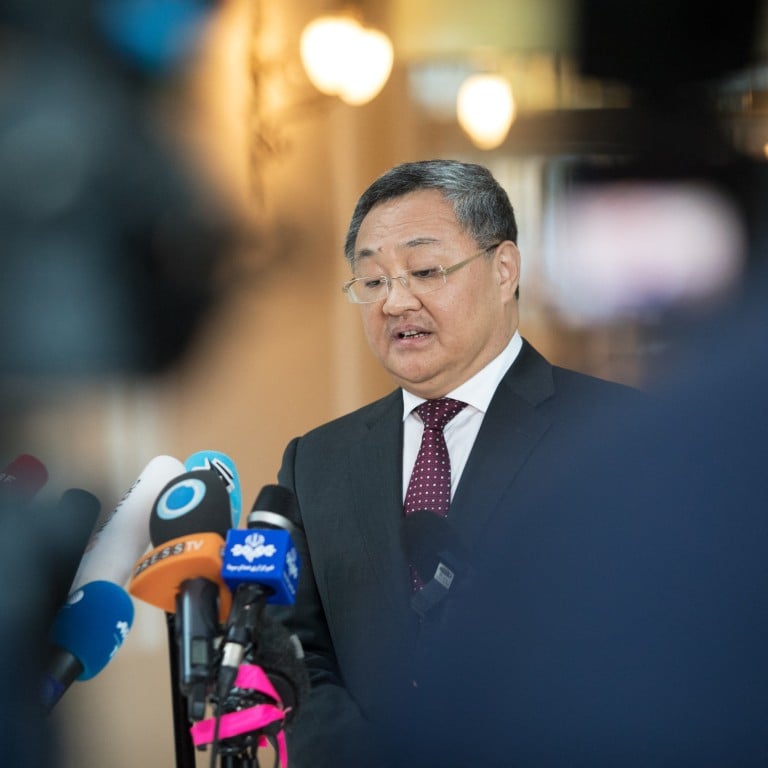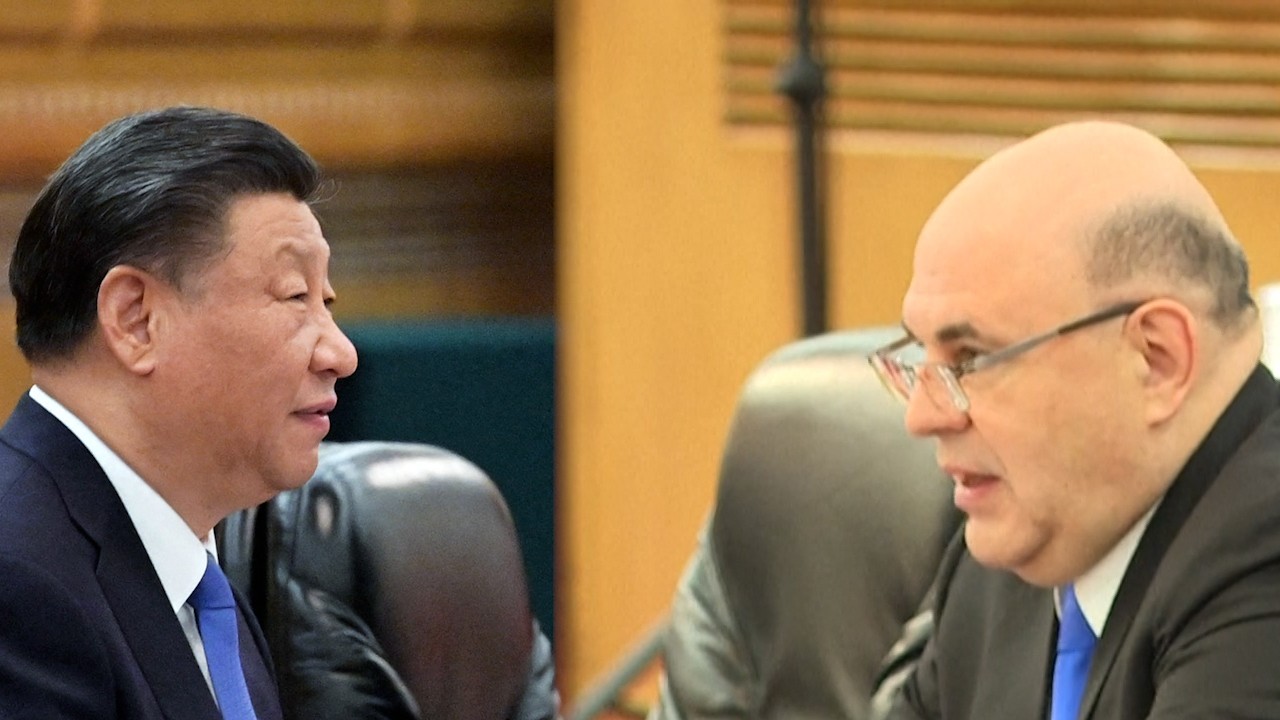
‘China is not Europe’: EU move to tie Chinese relations to Ukraine war is unfair, Fu Cong says
- Fu Cong says new sanctions on Russia that are expected to target Chinese companies lack evidence
- Envoy warns of ‘strong responses’ if sanctions go ahead
It is “unfair” and “not sensible” for European lawmakers to link the war in Ukraine with China-EU relations, China’s ambassador to the European Union said, warning of retaliation if the bloc targeted Chinese companies in new Russia sanctions.
In an interview with the British magazine the New Statesman republished on the website of the Chinese mission to the European Union on Sunday, Fu Cong said it was “unrealistic” to expect China to adopt the same position as the EU.
The bloc’s foreign policy chief, Josep Borrell, said earlier this month that China-EU relations would be “critically affected” if Beijing did not press Russia to withdraw from Ukraine.
The new sanctions, reportedly to be passed as early as next week, are expected to restrict exports to at least seven Chinese companies accused of circumventing existing EU sanctions by selling dual-use items they imported from Europe to Russia.
The companies include four already blacklisted by the United States – mainland-based 3HC Semiconductors and King-Pai Technology, and Hong Kong-based Sinno Electronics and Sigma Technology – as well as Asia Pacific Links, Tordan Industry and Alpha Trading Investments in Hong Kong, according to the Financial Times.
In the interview, Fu slammed the sanctions as lacking evidence and warned of “strong responses” if they went ahead.
He also defended China’s neutral position on Ukraine and reaffirmed its role as a peacemaker.
“We have our own diplomatic style and I think at this stage, actually, a simple condemnation does not solve the problem. It may reduce your space for diplomacy – if all countries take the side of one country, then who is going to come out as a mediator for peace? But it does not mean that we are condoning any action specifically in this conflict,” he said.
Asked about who started the Ukraine war, Fu said “the historians” could decide. He also avoided a direct answer when asked if Crimea was a part of Ukraine, saying only that China stood for the sovereignty of “all countries and he hoped the issue could be resolved through peaceful negotiations.
Fu also criticised European countries that called for peace while also waiting for conditions to be more “mature”. He urged an immediate ceasefire through peace talks, the same message touted by Li during his Europe tour.
Medvedev sees Ukraine war lasting decades, as US general doubts Russian victory
But Li’s efforts appeared to run into a deadlock in Europe. He was told by some Western officials that Russia’s withdrawal was non-negotiable before any freezing of the conflict, while he reportedly proposed the opposite – an immediate ceasefire that would leave Russia in possession of its new regions, according to the Wall Street Journal.
However, Ukrainian Foreign Minister Dmytro Kuleba rejected the Wall Street Journal report on Friday, saying he had contacted relevant European officials in the countries that Li visited, and “none of them” confirmed that Li had proposed recognising the Russian-occupied territories.
As calls grow to “de-risk” economic relations with China, Li was also said to have told his European counterparts to uphold their strategic autonomy and see China as an “economic alternative” to the US, amid suggestions that Beijing may be seeking to drive a wedge between Brussels and Washington.
In the interview, Fu demanded that Europe clarify its de-risk approach, stressing that China would oppose the strategy if it meant excluding China from the global supply chain over areas involving key technologies.
“If the EU side has concerns about dependency on China for certain things, the best way is to really talk to each other … dependency is not dangerous. What is dangerous is to weaponise the dependency,” he said.
As the US pressures the EU to help curb China’s development in critical sectors, the 27-member bloc has stepped up measures to tackle Chinese economic activities that could be deemed security dangers.
EU chief Ursula von der Leyen signalled in April that the pact could be shelved permanently as China became more “assertive”.
Fu urged the bloc not to allow the CAI to become “politicalised”, saying some perceptions in the EU towards China were based on “ideology”.
China, Russia hold security talks in Moscow amid tensions with the West
“Unfortunately, nowadays, there is this narrative about so-called democracy versus autocracy.
“I think this narrative is both misleading and, I would say, even dangerous.”

 - Kawala Xie.jpg?itok=NogZcyZ-&v=1661304068)
